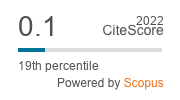Why did the Swedes lose the battle of Poltava? The nature against the Swedish army during the campaigns of 1708 and 1709
DOI:
https://doi.org/10.18778/1644-857X.19.01.03Keywords:
Charles XII, Great Northern War, campaigns of 1708 and 1709, expedition to Moscow, battle of Poltava, weather and natural conditionsAbstract
The article presents the course of actions undertaken by the Swedish army in the years 1708 and 1709. Both campaigns were directed against Russia, and the strategic goal outlined by the ruler of Sweden – Charles XII was to seize Moscow. At the end of 1708, however, the Swedish army was not in the foreground of the tsar’s capital, but in Ukraine, on the left bank of Dnepr. The following year the Swedes fought the battle of Poltava, which ended with their defeat. The author tries to answer the question, why did this happen? When discussing the path of Charles XII to the Poltava battlefield, he pays attention primarily to natural and objective factors (weather, surface shape, natural obstacles etc.) on which the King of Sweden had no influence. In the author’s opinion, these was this factors that largely influenced the fact that the Swedish army stood to the battle of Poltava significantly weakened and with a very little chance to win.
Downloads
References
Adlerfelt G., Leben Karls des Zwölften, König von Schweden, Frankfurt–Leipzig 1740.
Google Scholar
Fänrik Robert Petrés dagbok 1702–1709, [w:] Karolinska krigares dagböcker, del. 1, Lund 1901, s. 1–284.
Google Scholar
Löjtnant Joachim Matthiae Lyths dagbok 1703–1722, [w:] Karolinska krigares dagböcker, del. 2, Lund 1902, s. 1–99.
Google Scholar
Nordberg J.A., Histoire de Charles XII, Roi de Suéde, t. II, La Haye 1748.
Google Scholar
On the Eve of Poltava: The letters of Ivan Mazepa to Adam Sieniawski, 1704–1708, ed. O. Subtelny, New York 1975.
Google Scholar
Otwinowski E., Dzieje Polski pod panowaniem Augusta II od roku 1696–1728, Kraków 1849.
Google Scholar
Rakowski W., Pamiętniki, wyd. E. Piotrowski, Żytomierz 1860.
Google Scholar
Zawisza K., Pamiętniki, wyd. J. Bartoszewicz, Warszawa 1862.
Google Scholar
Anusik Z., Fenomen Iwana Mazepy w historiografii polskiej XIX i XX w., [w:] Mity i stereotypy w dziejach Polski i Ukrainy w XIX i XX wieku, red. A. Czyżewski, R. Stobiecki, T. Toborek, L. Zaszkilniak, Warszawa–Łódź 2012, s. 224–248.
Google Scholar
Anusik Z., Karol XII, Wrocław–Warszawa–Kraków 2006.
Google Scholar
Bengtsson F.G., The life of Charles XII king of Sweden 1697–1718, London 1960.
Google Scholar
From P., Klęska pod Połtawą. Kampania Karola XII w Rosji w latach 1707–1709, Zabrze 2010.
Google Scholar
Hallendorff C., Karl XII och Lewenhaupt år 1708, Uppsala 1902.
Google Scholar
Hjelmquist F., Kriget i Finland och Ingermanland 1707 och 1708, Lund 1909.
Google Scholar
Konopczyński W., Polska a Szwecja. Od pokoju oliwskiego do upadku Rzeczypospolitej 1660–1795, Warszawa 1924.
Google Scholar
Sarauw C., Die Feldzüge Karl’s XII: Ein quellenmässinger Beitrag zur Kriegsheschichte und Kabinetpolitik Europa’s im XVIII. Jahrhundert, Leipzig 1881.
Google Scholar
Serczyk W., Połtawa 1709, Warszawa 1982.
Google Scholar
Stille A., Carl XII:s fälttågsplaner 1707–1709, Lund 1908.
Google Scholar
Tielpuchowski B., Siewiernaja wojna 1700–1721, Moskwa 1946.
Google Scholar
Wimmer J., Wojsko Rzeczypospolitej w dobie wojny północnej (1700–1717), Warszawa 1956.
Google Scholar
Downloads
Published
How to Cite
Issue
Section
License

This work is licensed under a Creative Commons Attribution-NonCommercial-NoDerivatives 4.0 International License.













